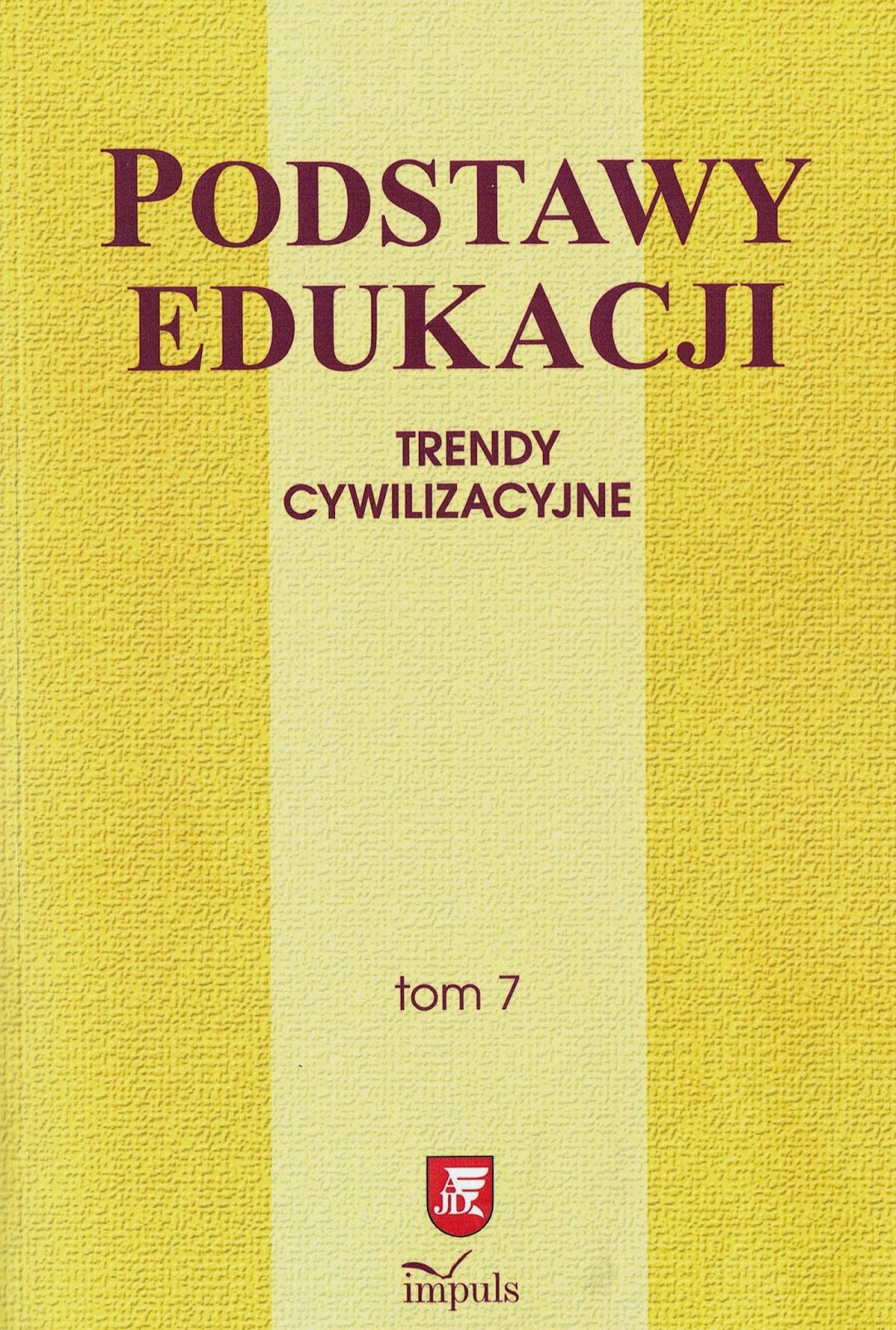Abstract
The aim of this article is to show the author’s original pedagogical concept called ontogeniagogy, it’s theoretical fundamentals and it’s importance for the development of children’s emotions, which are the foundation of that concept. The auth or’s theoretical inspirations are mainly rooted in D. Goleman’s books (Emotional Intelligence, Working with Emotional Intelligence, Social Intelligence), in Argentinian psychotherapist N. Levy’s, fascinated by Gestalt psychotherapy (The Wisdom of Emotions), and also in an American psychotherapist of French origin, Claude Steiner’s, who practices transactional analysis. At educational practice level the author indicates a necessary assumption which is the presence of healthy children’s parents in special schools in order to show emotions naturally transmitted to children. These parents, by displaying some kind of positive emotions, would be auxiliary people/teachers who support the disabled children’s didactic and educational process. The observations made with regard to everyday school life should be included in the strategies and taught in schools which educate future teachers or on special courses for parents. The elements of good practice should also be introduced in regular schools as a part of familiarizing the whole society with the problem of disability. This concept is based on the principle of human coexistence and balance. It creates the correct habits of coexistence, and respects and appreciates human differences not only in the social, but also inthe educational environment. The concept maximizes the transferof primary emotions with parents’ help and encourages the identification with disabled children. Creating support groups and flexible network of mutual relations in resolving a cognitive, emotional, social conflict promotes the integration with maintenance of diversity. Pluralism, which is an integral part of this concept, defends democratic values manifested in relationships with other people. Therefore it determines democratic education and optimal development of every human being. The ontogeniagogy concept derives from the author’s experience with indigenous native American tribes of northern Peru (professor Edward Enrique de la Puente is a lecturer at the Faculty of Education, the National University of Chachapoyas, Amazonas Department, and at the same time educates teachers working in a village in the Amazon jungle). The observations of tribal life, in particular the village chief’s gesture of love accepting a newborn child, even when disabled, as an example for the whole community became a starting point for the development of this unique concept of education, as the author emphasizes, the adult education. It is therefore a kind of andragogical concept in which the parent is a key link in the development of the child’s primary emotions around which his entire adult life will rotate. The author is convinced (as a consequence of experiences of the patriarchal system of Indian communities) that health child’s father plays a huge role. A child should follow him as he is a symbol of love and closeness, and what’sin a culture, let’s say the Western one, is not popular. It is worth mentioning that the author recognizes the role of public safety which is provided by a country and the government (this general conviction stemmed from a hostile government policies towards indigenous inhabitants of this part of the world). Taking a Different person as a disabled is a failure of the system and the orphaned education, without „pedagogical Mother and Father”, and may lead to upbringing emotionally unstable young people who cannot cope well with adulthood and show contempt and dislike for society. Avoiding the presence of parents of healthy children in special schools will continue to educate future adults with phobias and aversions. Perhaps the proposed ontogeniagogia is one of the possible ways to educate emotionally healthy adults.
References
García, J., Rodríguez, A. (2012). Los principios educativos del siglo xxi 15 – febrero – 2012 análisis. Lima.
Goleman, D. (1996). La inteligencia emocional. Barcelona.
Goleman, D. (2010). La inteligencia emocional en la empresa. Madrid.
Knowles, M. (1972). Andragogía no pedagogía. Caracas.
Knowles, M.S., Holton, E.F. III, Swanson, R.A. (2005). Androgogía – el aprendizaje de los adultos. Oxford.
Levy, N. (2003). La sabiduría de las emociones. Barcelona.
Ministerio de Educación (2006). La inclusión en la educación cómo hacerla realidad. Lima.
Robbins, S.P. (2004). comportamiento organizacional. Mēxico.
Steiner, C. (2010). La educación emocional. Mēxico.
Seminariodeestudiosprospectivos@yahoo.com.mx.
I am aware that the journal is published under the Creative Commons Attribution License (https://creativecommons.org/licenses/by/4.0/legalcode).
By submitting an article, I agree to make it available under this license.
